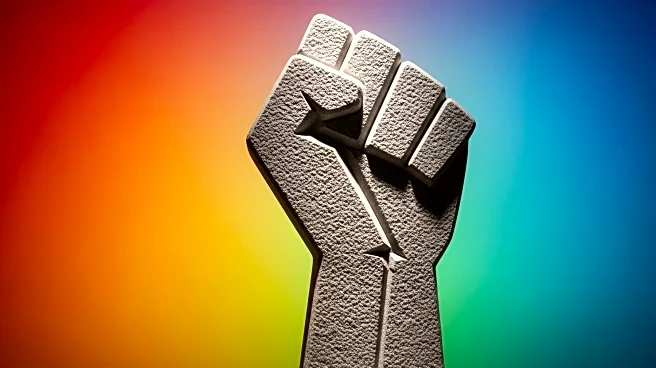What's Happening?
Gen-Z protests are gaining traction across continents, driven by social media platforms like Discord. This generation is mobilizing to demand action against corruption and advocate for social justice. The protests reflect a growing discontent among young people who are leveraging digital tools to organize and amplify their voices. These demonstrations are characterized by their decentralized nature and the use of innovative strategies to engage participants worldwide.
Why It's Important?
The global spread of Gen-Z protests signifies a shift in how social movements are organized and executed. This generation's ability to harness social media for activism highlights the changing landscape of political engagement. The protests could influence public policy and societal norms, as governments and institutions are compelled to address the issues raised by these young activists. The movement also underscores the power of digital platforms in shaping public discourse and mobilizing collective action.
What's Next?
As the protests continue to evolve, they may lead to tangible changes in policy and governance. Governments might face increased pressure to address the demands of Gen-Z activists, potentially resulting in reforms aimed at reducing corruption and promoting social justice. The movement's impact on future elections and political dynamics could be significant, as young voters become increasingly influential in shaping the political agenda.
Beyond the Headlines
The Gen-Z protests highlight broader cultural and generational shifts, as young people challenge traditional power structures and advocate for a more equitable society. This movement may inspire similar activism in other demographic groups, fostering a more inclusive and participatory political environment. The protests also raise ethical questions about the role of social media in activism and the responsibilities of digital platforms in facilitating or regulating such movements.








